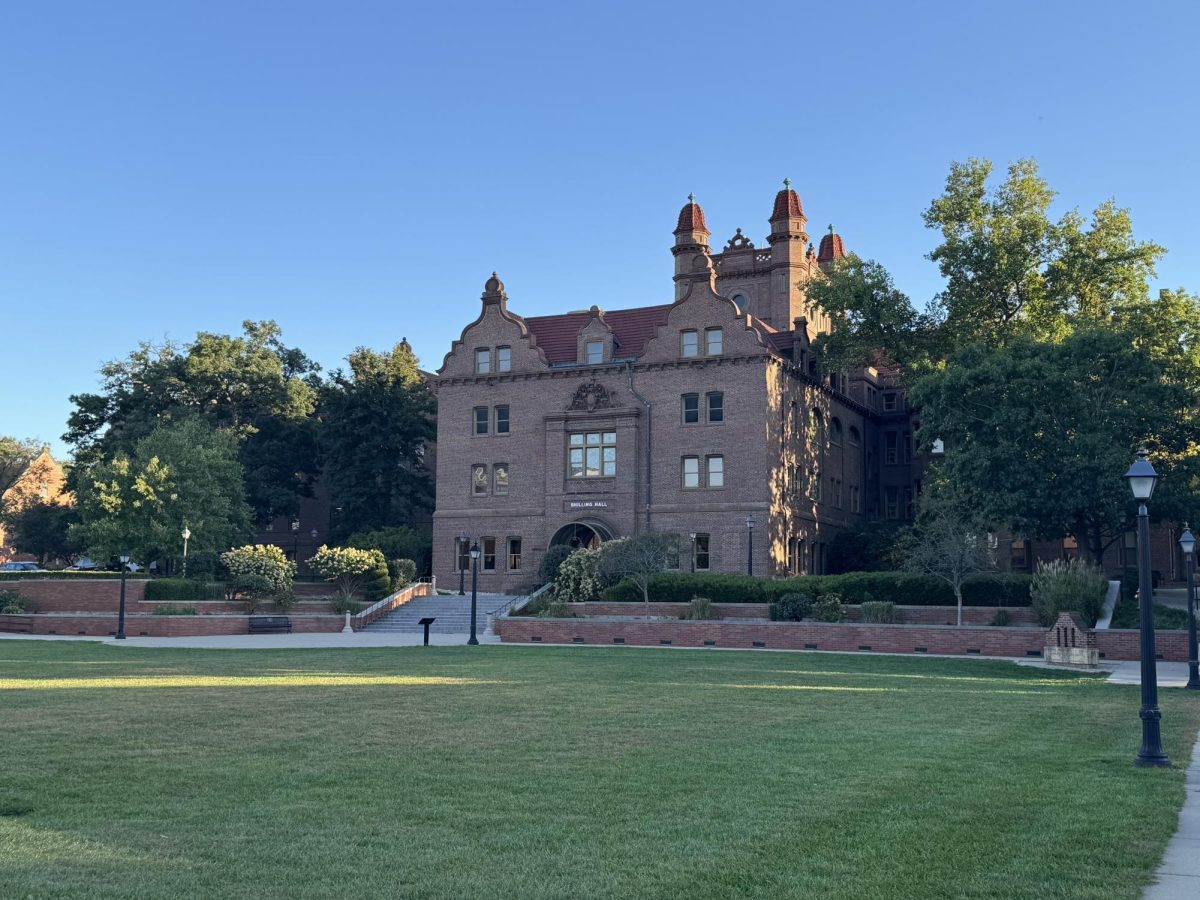The Shilling stairs are a feat of athleticism. They can have even the strongest and fittest individuals feeling winded after reaching the top.
The winding and lengthy staircases, which seem to spiral on forever, were obviously not designed for those with accessibility issues. A task that is already challenging for many can seem impossible to those with the added obstacle of a cane, wheelchair, or other mobility issues. This is what makes the Shilling elevator absolutely crucial.
“I use the Shilling elevator almost daily,” Elaine McLaughlin, a Millikin student, said. “As both an English major and a Writing Center tutor, I have class and work in this building every weekday, and I try to avoid taking the stairs to get to other floors as much as I can.”
This semester, the Shilling elevator has not been the most reliable, having broken down several times. Tony Magagna, Associate Professor of English in the School of Writing, Languages, and Cultures, first noticed issues with the Shilling elevator on the day of the semester’s Opening Convocation, prior to the start of classes.
“We have to wear our robes, and I keep them in my office,” Magagna said. “When I got here on that Sunday, the elevator wasn’t working, and I thought, ‘Oh, it’s been turned off,’ but then the first day of classes rolled around, then the second day of classes, and there were no elevators.”
It was after this point that Magagna realized there was a real issue with the Shilling elevators. He worried about students and faculty who might have trouble accessing the classrooms in the building due to a lack of accessibility.
“[There are] a lot of people who need the elevator,” Magagna said. “There’s no other way to access classroom space in Shilling without the elevator, and that’s true of a lot of the buildings on campus.”
McLaughlin experiences joint pain and lightheadedness, so she often uses a cane to aid in mobility around campus. McLaughlin relies on the elevators to arrive in class on time and to be ready to learn.
“It can be really stressful when the elevators aren’t working,” McLaughlin said. “There have been several times when the elevators being down have me questioning whether or not I will be able to get to my classes safely and on time. It’s also worth noting that the Main Street facing entrances of the building don’t have any accessibility, which, for the disabled students required to live in The Woods apartments, makes it somewhat difficult to even navigate to this elevator.”
The elevators have been malfunctioning intermittently since the start of the semester. Magagna believes a reporting system that sends out a warning email to students and faculty would be beneficial in helping everyone plan for whether classes need to be canceled, relocated, or held virtually to accommodate the broken elevator.
“I think [there are] two issues,” Magagna said. “One, the elevator needs to be reliable, and the other is when it’s not, we need a system to be able to notify people that it’s not. It’s not just an inconvenience, it really is something that affects whether a faculty member can teach or whether a student can access their classes.”
An unreliable elevator is, in any case, cause for concern. No one wants to be unable to use the elevator, but there is also the worry of being trapped inside or stuck at the top of the building with no way down. When the elevator is non-operational, administration has been good about sending repair technicians to get it functioning again. However, the continual malfunctioning may indicate that the elevator repairs are not as linear a process as hoped for.
“Personally, I don’t think, seeing the ramifications of it, that there’s enough sense of urgency with it,” Magagna said. “People who don’t need an elevator don’t often realize the urgency of it. That’s the downside of accessibility issues; unless you have an accessibility issue, sometimes you don’t have a real grasp of what it is and why people need these accommodations.”
Shilling is a building that almost all students will have a class in at some point during their time at Millikin, due to its housing of multiple majors and tutoring resources. There is limited additional classroom space to relocate to on campus with short notice, and it is very dependent on the time of day, posing a potential challenge for professors.
“Whether you are disabled, injured, or just too tired to take the stairs, everyone has a reason to need to use Shilling’s elevator and should have access to these essential resources and classes that take place in this building,” McLaughlin said.
The Shilling elevator is an important mode of accessibility to students and faculty. A more aggressive and proactive approach may be necessary to keep the elevator operational and provide peace of mind to everyone who relies on it.



